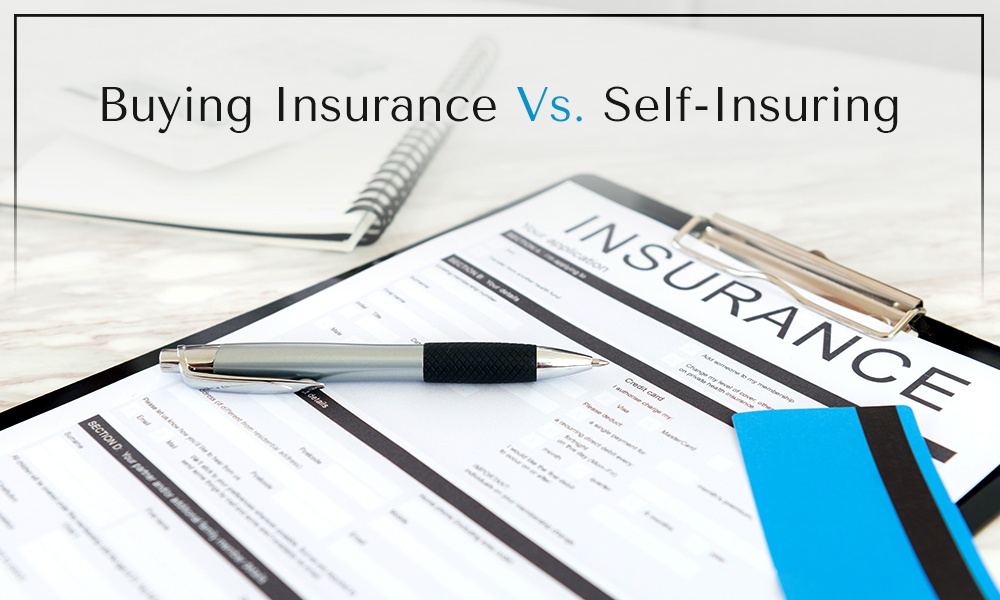Buying Insurance Vs. Self-Insuring

Insurance is a monetary asset meant to cover your expenses in the event of a death, accident, injury, sickness and/or disease. It’s like a cash reserve for unforeseen events. It is ideal for every individual earning an income to consider including insurance in their financial plan. However, before obtaining an insurance plan, it is important to understand that you have two options. You can either buy insurance or self-insure.
These two strategies are different and it is imperative to be informed of the advantages and disadvantages of each. To bring you up-to-date on the basic pros and cons of these options, Kelvin Chong - Life Insurance Brokers have compared purchasing insurance vs. self-insuring.
A. Using insurance
Using insurance is an excellent hedge for financial risk as it provides the required payout when needed most. It is typically the most cost-effective way of mitigating the risks associated with a premature death, a life-changing event that impacts one’s financial well-being, and the possibility of outliving one’s resources. Using insurance is essentially buying money at a discounted rate. The amount of insurance is determined based on one’s needs at the time of purchase of the contract. The payout is typically non-taxable and is designed to be paid directly to the designated beneficiaries. When filing a claim, the designation of beneficiaries allows for privacy, confidentiality, and efficiency of settlement. Another benefit is, insurance contracts can be set up so the proceeds bypass probate.
That said, to obtain insurance, one must qualify. The insured must typically answer medical and lifestyle questions to determine their eligibility for the requested coverage. Once the ideal insurance coverage is determined, an insurance contract is set up to pay at the occurrence of a specific event, such as a death, an illness, accident, or injury. The insured also has a contractual agreement to make periodic payments to maintain their coverage.
B. Self-insuring
Self-insuring refers to setting aside money to remedy an unexpected loss. Doing so offers flexibility to the self-insured to determine the amount, frequency and how the money is invested. In the event of an emergency, it allows for immediate access to the funds accumulated.
While it may seem straightforward, self-insuring presents some challenges. In many instances, individuals do not actively set aside or do not have the capacity to set aside the required amount of money for the purpose of self-insuring. As a result, they tend to use existing savings and investments such as RRSPs and TFSAs, etc., to remedy the loss.
The accumulated amount (or the value of the investment) may not be sufficient if and when the event occurs, i.e., premature death, sickness, or injury. Moreover, self-insuring may be the least cost-effective option. The amount accumulated may also be taxable (in whole or in part) in the hands of the investor at the time of withdrawal. This may result in a lower value available. If using existing investments meant for other purposes, such as retirement, this strategy may significantly impact the longevity of these resources for their originally intended purpose. Similarly, borrowing money can be cost-prohibitive, and eligibility may not be possible.
Bottom line
All eligible individuals who require insurance should consider this protection as an integral part of their financial planning. Self-insuring works best for uninsurable individuals, or when the insurance solution is cost-prohibitive or, for those who have the true financial capacity to self insure.
To determine whether you should buy insurance or self-insure, it is important to conduct a financial needs analysis and be informed on the advantages and disadvantages of each option. This analysis will allow us to identify the needs and cost benefits of using one option as opposed to the other.
For more details about insurance, reach out to Kelvin Chong - Life Insurance Brokers. We are the best life insurance brokers and agents in Ottawa, Ontario. With a combined experience of over fifty years, we are well-versed in the best practices to find the ideal insurance options for you. The products we offer you are chosen based on your needs, financial well-being, and the risk associated with your health.
If you’d like to learn more about our services, please click here or get in touch with us by clicking here.